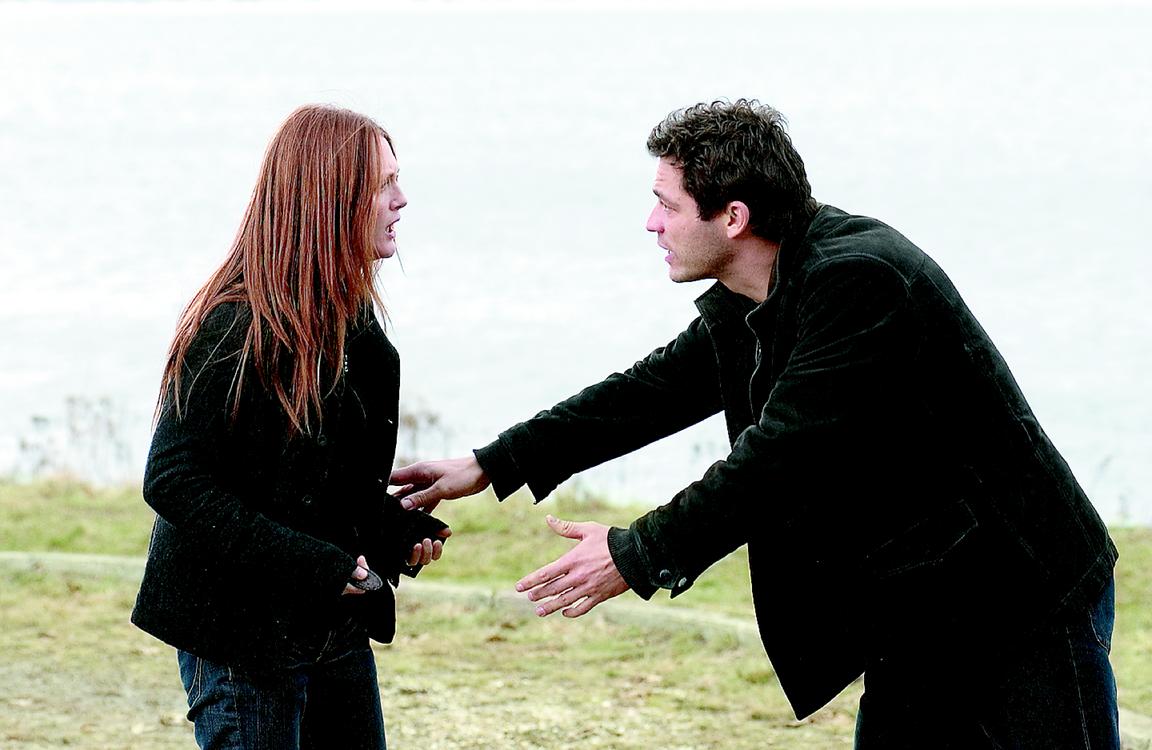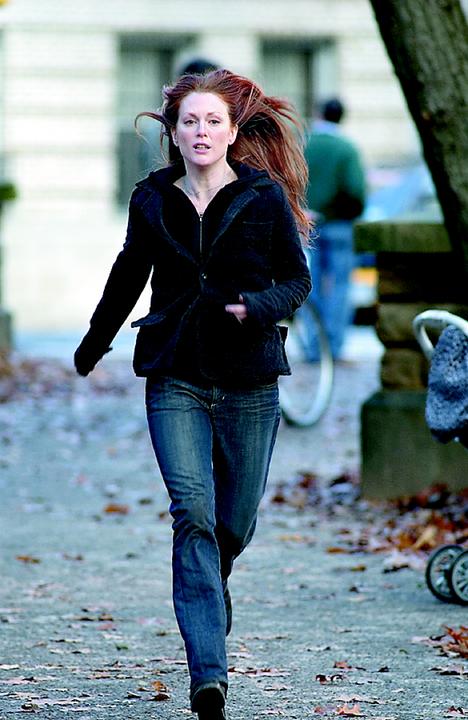For starters, the film is inordinately well acted and sharply written. Julianne Moore stars as Telly Paretta, a grieving wife and mother struggling to get over the recent loss of her 9-year-old son in a tragic airline accident. Moore is a powerhouse actress, and her character's stubborn, wounded inability to recover from her son's death grounds the film quickly in emotional reality. The kink in the narrative comes when Telly's husband (Anthony Edwards) and her psychiatrist (Gary Sinise) break the news to her that she never actually had a child. They insist that she has made the whole thing up after suffering a miscarriage. As if to prove their point, all the family photos, all the childhood videos, even the news articles about the plane crash seem to have vanished. Despite the evidence (or lack thereof), Telly refuses to believe her son was just an illusion.
Our determined, if slightly disturbed, heroine hunts down Ash Correll (Dominic West), a single father whose young daughter was killed in the same plane crash as Telly's son. No luck. He remembers neither her son nor his daughter. Still, she persists. Eventually, prodded by the name of his alleged daughter, Ash is flooded by memories. Perhaps he really did have a daughter. But who (or what) could erase every trace of these children, including all memories of their existence? And why would such a horrible thing be done?
Sending out vibes like an exceptionally creepy episode of “The X-Files,” The Forgotten leads its characters into deeper and darker realms of freaky paranoia. As the story goes on, reality seems to be changing around our protagonists at a rapid pace. Soon, Telly's own husband doesn't even recognize her. How is all this possible? What horrible “truth” is being buried? Are our own memories really real? While not exactly a horror film, The Forgotten is one of the few films in recent memory to illicit audible gasps from its audience. There are some genuine shocks here, doled out sparsely, but with triphammer timing.
The film's narrative chills and thrills all seem to be leading somewhere, and viewers will be kept on their toes trying to guess at the “big twist.” I'm not really sure if this counts as a spoiler or not, but the biggest twist of the film is that there is no big twist. The film plays it all very cagey and mysterious-like and never actually explains what the hell is going on. Viewers are more or less left to their own devices to explain things–which I find just a little odd. Certainly, that's not as disappointing as the end of The Village, but it may not be satisfactory enough for moviegoers who like a little more closure in their endings.
Some have compared The Forgotten to Dark City, Alex Proyas' greatly underrated 1998 sci-fi film. The comparison is apt in many ways. The films, however, are on uneven philosophical ground. Dark City was an ahead-of-its-time rumination that asked what–in this ever-changing, high-tech world–truly makes us, well, us. The Forgotten seems to be asking whether the bond between a mother and a son is a strong one. … I think most folks can answer that particular puzzler without seeing the movie.
Screenwriter Gerald Di Pego (Phenomenon, Angel Eyes) and director Joseph Ruben (The Stepfather, Sleeping With The Enemy) have assembled a classy, compelling sci-fi/drama/thriller that more than shakes up a few expectations. It's a shame the film doesn't conclude with more punch, both narratively and thematically. But it is a tense, twisty little mindbender that could just generate significant interest as a cult curiosity among conspiracy-loving cineastes.




